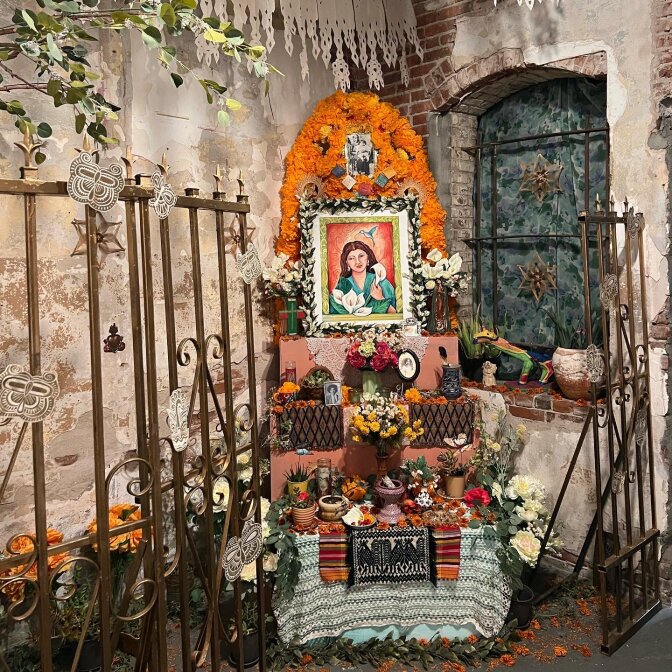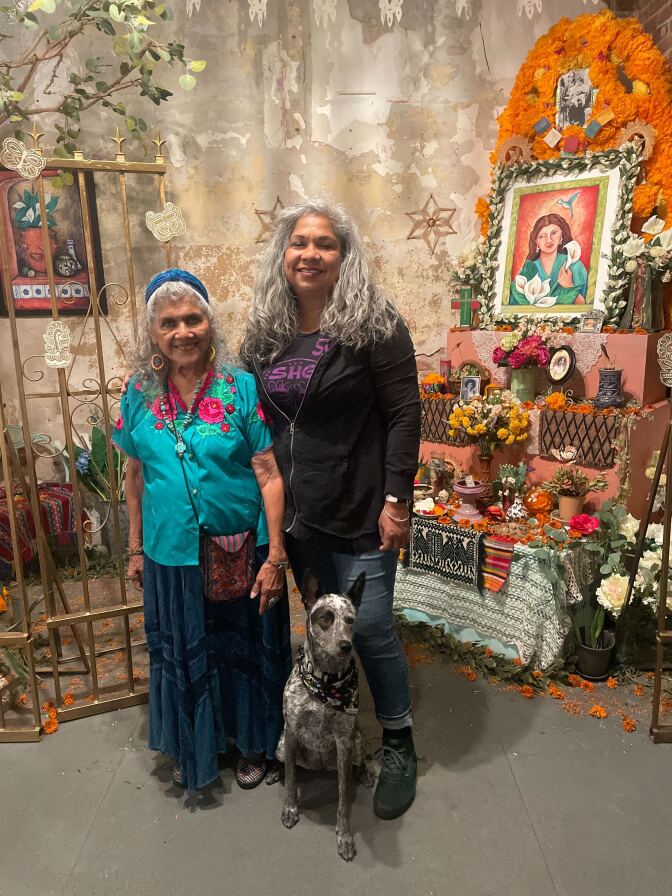This story is free to read because readers choose to support LAist. If you find value in independent local reporting, make a donation to power our newsroom today.
LA's Matriarch Of Día De Los Muertos Talks To Us About Death, Making Altars And The Significance Of The Day

One of the first things to know about Día de los Muertos is that it is not the Mexican Halloween. The How To LA podcast team sat down with Ofelia Esparza to talk about the true significance of the tradition for some Angelenos.
About Esparza
Esparza is kind of like L.A.'s matriarch for Day of the Dead and is the go-to artist to build an ofrenda in this town — the altar built to remember loved ones who had died.
She was born in East L.A. in 1930 and still lives about four blocks from where she was born, really close to Calvary Cemetery. She has nine children, 16 grandchildren and 13 great grandchildren.

Listen to the podcast
Her views on death
Esparza says she learned the importance of remembering the dead from her mother, who taught her about family members she'd never met.
"I came to realize the importance of that aspect, but it also carries our identity as a culture," Esparza said. "I want to honor these people, not how they died, but how they were loved, how their parents, their family loved them."
"My mother, she would say that we all suffer three deaths. And the first death is the day that we give our last breath. The day that we die."
"Our second death is the day we're buried. And she would say 'never to be seen on the face of the earth again'. And that seems so final. She says 'no. the most final and most dreaded death of all is to be forgotten'."
How To
About How To LA
We’re here to help curious Angelenos connect with others, discover the new, navigate the confusing, and even drive some change along the way. Host Brian De Los Santos brings you stories about L.A., for L.A., by L.A. — with your help. Like you, we know this city is unique, and that’s why it’s one of the reasons we love it.








